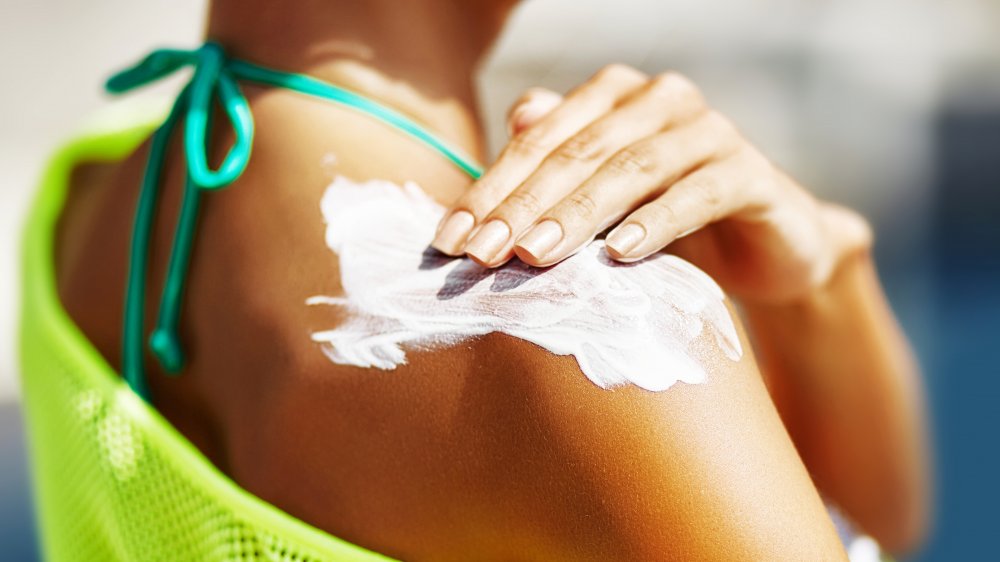Surprising Ingredients Found In Your Sunscreen
There are few things as uplifting and joyful as a bright sunny day, no matter what time of year that might be. Other than being a natural source of vitamin D, sunlight is generally known to enhance a person's mood, it can treat seasonal depression (which generally happens during the winter), relieves stress, and helps improve sleep (via LiveWell).
But we also know that what's good for us can also be harmful, and that extreme sun exposure can lead to illnesses, including heatstroke and heat exhaustion — and when sun exposure is consistent, skin cancer can pop up, which the American Cancer Society has listed as one of the most common cancers in the United States today.
Reaching for a bottle of sunscreen, then, is par for the course for anyone who wants to try to avoid skin cancer. But is all sunscreen the same? Are there potentially-harmful ingredients lurking within?
Is sunscreen a safe way to protect ourselves from skin cancer?
We used to think that covering ourselves up with high-SPF sunscreens and sunblocks was the smartest way to go — especially during the blazing summer months. Now, however, the U.S. Food and Drug Administration isn't so sure. While we've always assumed that sunscreen doesn't really get absorbed into our systems, a study published in the Journal of the American Medical Association shows that this may not actually be the case. It examined the absorption of four commercial sunscreens into our system and found that at least one active ingredient is making its way into our bloodstream (via ABC).
Environmental Working Group, or EWG, says that because of this, the FDA is now looking to propose changes to how sunscreen ingredients will be tested for safety, and that is to include studies on whether ingredients actually penetrate our skin to cause more harm than good. EWG is especially worried about the effect of oxybenzone, which studies show may mimic hormones. Oxybenzone is one of six ingredients commonly used in chemical sunscreens today; other ingredients are avobenzone, octisalate, octocrylene, homosalate, and octinoxate.
Mineral sunscreens, on the other hand, use zinc oxide and/or titanium dioxide; EWG says these have undergone testing and are considered to be safe.
Is sunscreen still a safe option?
So aside from looking to use UV protective clothing and sunhats, should people still use sunscreen? Debjani Sahni, director of the Boston Medical Center Cutaneous Oncology Program, says definitely yes (via BU Now).
"We should take into account the available scientific data so far," explains Sahni. "We know that skin cancer is the most common type of cancer in the United States, and one in five Americans will be diagnosed with skin cancer in their lifetime. We also know that damage to the skin from UV radiation is the number one cause of skin cancer. The use of sunscreen has been scientifically proven in humans to reduce the risk of developing skin cancer and precancerous lesions."


